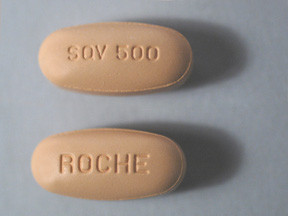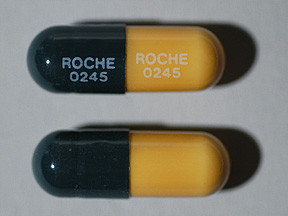SAQUINAVIR - ORAL
PHONETIC PRONUNCIATION: (sa-KWIN-a-vir)
COMMON BRAND NAME(S): Invirase
GENERIC NAME(S): saquinavir mesylate
Uses
USES: Saquinavir, used in combination with ritonavir and other HIV medications, is used to help control HIV infection. It helps to decrease the amount of HIV in your body so your immune system can work better. This lowers your chance of getting HIV complications (such as new infections, cancer) and improves your quality of life. Saquinavir belongs to a class of drugs known as protease inhibitors. It must be given with ritonavir, another protease inhibitor, to increase ("boost") the levels of saquinavir. This helps saquinavir work better. Saquinavir is not a cure for HIV infection. To decrease your risk of spreading HIV disease to others, do all of the following: (1) continue to take all HIV medications exactly as prescribed by your doctor, (2) always use an effective barrier method (latex or polyurethane condoms/dental dams) during all sexual activity, and (3) do not share personal items (such as needles/syringes, toothbrushes, and razors) that may have contacted blood or other body fluids. Consult your doctor or pharmacist for more details.
How to use SAQUINAVIR - ORAL
HOW TO USE: Read the Medication Guide provided by your pharmacist before you start taking this medication and each time you get a refill. If you have any questions, ask your doctor or pharmacist. Take your dose of saquinavir and ritonavir by mouth at the same times, as directed by your doctor, with a meal or up to 2 hours after a meal, usually 2 times daily. To reduce your risk of side effects, your doctor may direct you to start saquinavir at a low dose and gradually increase your dose. Follow your doctor's instructions carefully. The dosage is based on your medical condition, response to treatment, and other medications you may be taking. Be sure to tell your doctor and pharmacist about all the products you use (including prescription drugs, nonprescription drugs, and herbal products). For the best effect, take this medication at evenly spaced times. To help you remember, take this medication at the same times every day. It is very important to continue taking this medication (and other HIV medications) exactly as prescribed by your doctor. Do not take more or less of this drug than prescribed or stop taking it (or other HIV medicines) even for a short time unless directed to do so by your doctor. Skipping or changing your dose without approval from your doctor may cause the amount of virus to increase, make the infection more difficult to treat, or worsen side effects.
Side Effects
Precautions
Interactions
Overdose
Images

- color
- light brownish-orange
- shape
- oblong
- imprint
- ROCHE, SQV 500

- color
- green
- shape
- oblong
- imprint
- ROCHE 0245, ROCHE 0245

- color
- light brownish-orange
- shape
- oblong
- imprint
- ROCHE, SQV 500
Reviews
Faq for SAQUINAVIR - ORAL
Saquinavir is an oral medication used for the treatment of HIV infection. It belongs to a class of drugs known as protease inhibitors.
Saquinavir works by blocking the activity of an enzyme called protease, which is necessary for the replication of the virus. By inhibiting protease, saquinavir helps to reduce the amount of HIV in the body and slows down the progression of the disease.
The recommended dosage of saquinavir varies depending on the specific formulation being used. It is usually taken twice daily with food, and it is important to follow your doctor's instructions carefully.
Common side effects of saquinavir may include nausea, diarrhea, vomiting, abdominal pain, headache, fatigue, and changes in taste. More serious side effects such as severe rash, liver problems, and allergic reactions are rare but can occur. It is important to inform your doctor if you experience any side effects while taking saquinavir.
Saquinavir has the potential to interact with several other medications, including certain antibiotics, antifungals, anticoagulants, and cholesterol-lowering medications. It is essential to inform your doctor or pharmacist about all the medications you are taking before starting saquinavir to minimize the risk of drug interactions.
Saquinavir may cause changes in heart rhythm, including QT prolongation. It should be used with caution in patients with a history of heart disease or those taking other medications known to affect heart rhythm. Additionally, saquinavir can interact with certain herbal supplements, so let your doctor know if you take any alternative or complementary medicines.
The duration of saquinavir treatment depends on several factors, including your individual response to the medication and the overall management plan for your HIV infection. It is crucial to continue taking saquinavir as prescribed by your doctor, even if you start feeling better. Stopping the medication prematurely can lead to viral resistance and treatment failure.
No, saquinavir is not a cure for HIV infection. It can effectively manage the virus, reduce its replication, and slow down the progression of the disease, but it cannot completely eliminate the virus from the body.
It is generally recommended to avoid excessive alcohol consumption while taking saquinavir. Alcohol can increase the risk of liver toxicity and may also interfere with the effectiveness of the medication. It is best to consult your doctor for specific guidelines regarding alcohol consumption.
Saquinavir oral is used to treat HIV infection in combination with other antiretroviral medications.
Saquinavir oral belongs to a class of drugs called protease inhibitors. It works by inhibiting the HIV protease enzyme, thereby preventing the virus from replicating and spreading in the body.
The common side effects of Saquinavir oral may include diarrhea, nausea, vomiting, stomach pain, headache, weakness, and changes in taste or sense of smell. It can also lead to changes in body fat distribution (lipodystrophy) and increased blood sugar levels.
Saquinavir oral should be taken exactly as prescribed by your healthcare provider. It is usually taken with a meal or a light snack to increase its absorption. Swallow the capsule whole, without crushing or chewing it.
No, Saquinavir oral cannot cure HIV infection. It is an antiretroviral medication that helps control the virus and improve the immune system, but it cannot completely eliminate the virus from the body.
If you miss a dose of Saquinavir oral, take it as soon as you remember. However, if it is close to the time for your next scheduled dose, skip the missed dose and continue with your regular dosing schedule. Do not double the dose to make up for the missed one.
Yes, Saquinavir oral can interact with other medications, including prescription, over-the-counter drugs, and herbal supplements. It is important to inform your healthcare provider about all the medications and supplements you are taking to avoid any potential drug interactions.
The onset of action of Saquinavir oral varies from person to person. It usually takes a few weeks to months to see a significant reduction in HIV viral load and an improvement in immune function.
Yes, there are certain precautions and warnings associated with Saquinavir oral. It may cause liver and pancreas problems, increase the risk of bleeding, and interact with certain medications. It is important to discuss your medical history and any pre-existing conditions with your healthcare provider before starting Saquinavir oral.
Disclaimer
IMPORTANT: HOW TO USE THIS INFORMATION: This is a summary and does NOT have all possible information about this product. This information does not assure that this product is safe, effective, or appropriate for you. This information is not individual medical advice and does not substitute for the advice of your health care professional. Always ask your health care professional for complete information about this product and your specific health needs.
No Reviews Yet